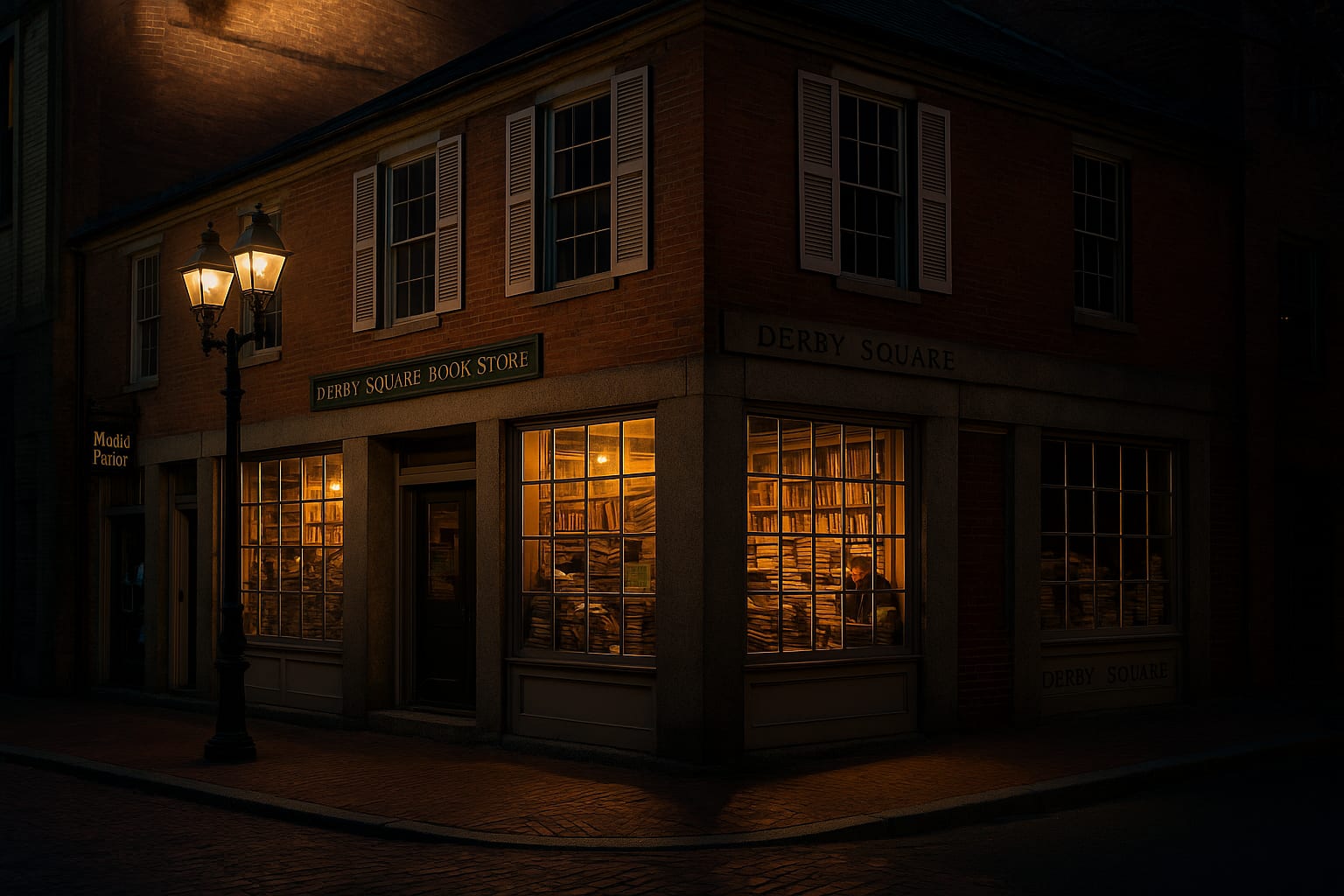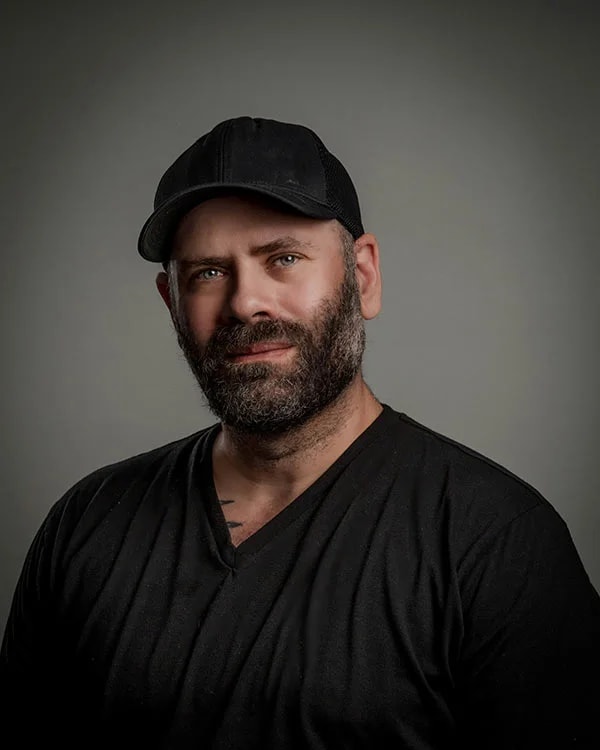The Ghosts of Wicked Good Books in Salem
On 215 Essex Street, Wicked Good Books is the place for new and used books sold in Salem. Founded in 2003, the shop sits near many of Salem's most famous locations including Ropes Mansion, The Witch House and more.
However, the building itself is well over 100 years old. When Wicked Good Books opened in 2003, it was in Salem's Old Town Hall at 32 Derby Square. That location closed in 2011, and Wicked Good Books would soon be reborn at their current location on Essex Street. After a short closure, the shop reopened to much fanfare at their new spot on September 30th, 2017.
Not only is the building that currently houses Wicked Good Books supposedly haunted, but many of Salem's most haunted locations, including Rockafellas and Ropes Mansion, have an entrance to an underground tunnel in their basement. Could Wicked Good Books also have a basement entrance to Salem's famous underground tunnel system? The short answer is yes. The shop is linked to many of Salem's famous sites through a series of underground passages.
So, who haunts Wicked Good Books? Here is what we know.
The History of Wicked Good Books
Renovations and Rebranding
By 2011, Salem's Derby Square was starting to show its age. That year, the square went under a multi-million dollar makeover. Parts of the square, like the Old Town Hall building, would be demolished to make room for the changes.
According to The Salem News, plans for Derby Square included "new brick sidewalks, benches, lighting and a water feature." On top of that, "The existing brick pavers would be taken out and reused at various locations in the city."
One shop owner at the time, Ken Turino, told The Salem News, "Right now, Derby Square is uninviting and uninspiring. There's really nothing there to entice anyone to go. Once you put in benches and the fountain and the new brick, I think that will do two things: It will give us an attractive, inviting space for people to sit and relax."
It did just that. Following the renovations, Derby Square became one of the premiere places to shop and hang out in Salem. As for Wicked Good Books? The shop would move to 215 Essex Street. After the move, Wicked Good Books went through a rebrand and reopened in 2017. The "new" old shop was opened with help from Mayor Kim Driscoll, who was quoted as saying, "When you look at the bones of a great old building and the cool factor of what has been around, you know that something awesome is going to happen inside."
That something awesome was a secret tunnel, exposed during the renovation, which led to many haunted locations across Salem. The tunnel system is one of Salem's worst kept secrets, but up until the 2017 renovations, those in the know would refuse to admit that they even existed. More on that later.
Salem's Secret Tunnel System
Those who live in Salem know that the city has a vast, interconnected network of tunnels spread throughout the town. Although shrouded in mystery, tunnels have been spotted in multiple locations including The Witch House, Rockafellas, and many more. A tour guide in Salem, speaking to The Salem News about finding a tunnel in the Witch House basement during restoration, said, "The belief is the tunnel went to [the] Ropes Mansion."
Salem's tunnel system is so extensive, in fact, that most people who are "in the know" are hesitant to even admit that they exist. The Salem News reported on this as well. "Store owner Sandra Thibodeau has seen a tunnel in the basement of what is now Rockafellas on Essex Street. Her family managed the building more than 30 years ago when it housed an A&P grocery store, and she recalls a red door at one end of the shop's basement. Behind the door was a 'beautiful' brick archway and a set of stairs that led 'down, down, down.'"
Thibodeau wanted to explore, but she "was told not to go." However, she "believes it may have connected to the basement tunnels of nearby stores and even the cemetery at the Old First Church down the street."
According to the report, "Thibodeau and others who are aware of underground tunnels and rooms in Salem would prefer they remain secret. For one thing, the passageways don't conform to modern building codes."
"I don't think people want to talk about them," she said.
So, why were Salem's tunnels built in the first place? That question is still hotly debated. Most of the tunnels underneath Salem are thought to have been built in the early 1800s when Salem was one of the richest port cities on the eastern seaboard.
Elias Hasket Derby
Salem owes much of its wealth from the early 1800s to a single man: Elias Hasket Derby. Derby has been referred to as one of the first millionaires in America. The wealthy merchant amassed his fortune while trading goods from around the world. As a merchant, Derby had to have a way of easily transporting goods from his ships to his shops.
A series of underground tunnels, spreading the length of Essex Street, would give Derby easy access to his ships without needing to worry about the cold New England weather during winter. After all, when you are one of the wealthiest traders in all of America, walking a block in the cold, snowy winter isn't something you would have to do.
However, there are two other possible reasons for the tunnels. The first is the Underground Railroad. During the mid-1800s, Salem was an avid supporter of abolition. Many of the city's residents actively worked to help enslaved individuals escape to freedom further north. Salem played a part in the Underground Railroad, and many believe that the tunnels played an integral part in helping enslaved individuals to freedom.
That would make sense if one believes Sandra Thibodeau's claim of a tunnel to the Old First Church.
Finally, the last theory is that the tunnels were built to help move liquor during prohibition. Salem was no stranger to the speakeasy culture, and moving booze from one place to another without being spotted required a series of underground passageways.
According to The Salem News, "As for the tunnels beneath Derby Square, (City Councilor) Sosnowski admits the city doesn't have all the answers."
"I think it was a combination of all of that," Sosnowski said. "I think it started with moving merchandise and then became a way to move people and also liquor. It has an amazing history."
That amazing history makes Salem's underground tunnels popular with paranormal investigators. If the rumors are true, and the tunnels spread the length of Salem, there is a direct connection to many of Salem's most well-known and highly haunted locations. Could that connection also include Wicked Good Books?
Well, in 2017, when the new location of Wicked Good Books was being renovated, workers found a second basement underneath the shop. That basement had a hidden entrance to the tunnel system spreading throughout Salem. It appears Wicked Good Books is directly attached to Salem's underground.
Many wonder if this is what allows the ghosts to move from one shop to another. After all, Salem is well known for being home to ghosts and hauntings, and the reports of paranormal activity at Wicked Good Books would seem to indicate it is just as haunted as many other spots throughout town.

